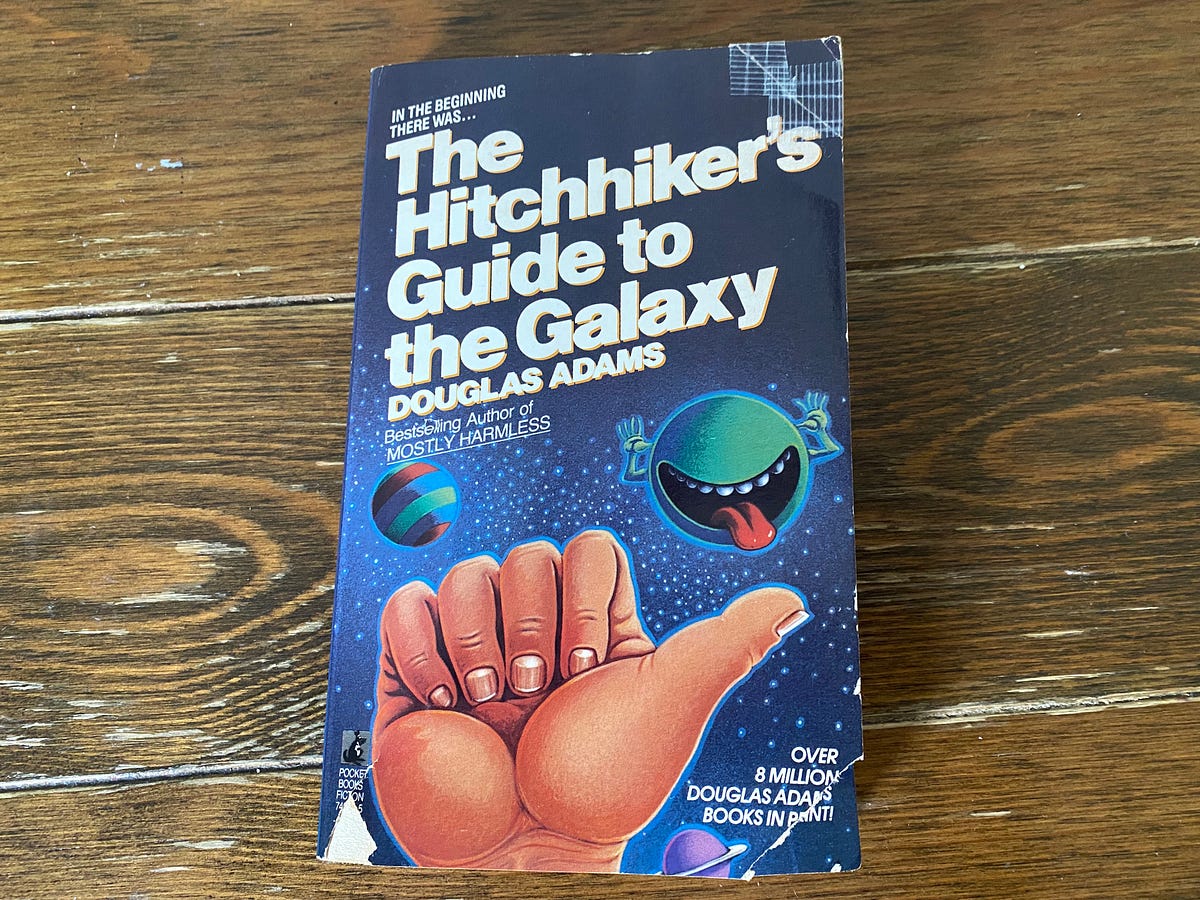The universe is a vast expanse, replete with mysteries, quirks, and an array of absurdities that often provoke a hearty laugh or a contemplative sigh. One such masterpiece that encapsulates this whimsical exploration of existence is Douglas Adams’ “The Hitchhiker’s Guide to the Galaxy.” This iconic work of science fiction transcends the genre, serving not only as entertainment but also as a satirical reflection on life, the universe, and everything in between.
Elegance in Absurdity
The Hitchhiker’s Guide to the Galaxy begins with a remarkably mundane premise: Arthur Dent, an ordinary human, is faced with the imminent destruction of Earth. But, as absurdity mounts, what follows transforms the narrative into a kaleidoscope of interstellar adventures that challenge conventional logic and societal norms. Through a combination of deadpan humor and surreal escapades, Adams crafts an environment where the unthinkable becomes routine, illuminating the absurdity of existence in a universe indifferent to human concerns.
Readers can expect to encounter an eclectic mix of characters, each more eccentric than the last. Arthur, the bewildered everyman, is joined by Ford Prefect, a roguish alien researcher for the titular guidebook, who offers Arthur a ticket to an otherworldly experience. Then there’s Zaphod Beeblebrox, a flamboyant ex-President of the Galaxy, whose two heads and three arms serve as a metaphor for the chaotic nature of leadership. These characters exist in a universe where logic seems orphaned, compelling readers to embrace the chaos rather than resist it.
The Essence of the Guide
One of the most enchanting elements of this book is the titular ‘Hitchhiker’s Guide to the Galaxy’ itself, a digital travel guide that serves as a source of both information and comedic relief. Its inscribed motto, “Don’t Panic,” offers not just advice to travelers but serves as a mantra for navigating the unpredictable terrain of life. The guide’s entries are peppered with an iridescent blend of humor and wisdom, reflecting Adams’ perceptive critique of human behavior and cultural norms. Readers will find themselves enthralled not only by the narrative but by the profound truths nestled within the absurdity.
Philosophical Pondering
Certainly, The Hitchhiker’s Guide to the Galaxy is far more than a mere comedy; it is a treasure trove of philosophical musings. Adams deftly explores questions that have puzzled humanity for centuries: What is the meaning of life? What is our place in the cosmos? Through whimsical dialogues and outrageous predicaments, he dissects these existential queries with a blend of skepticism and humor. For instance, the ultimate answer to life, the universe, and everything is humorously distilled to the number 42, a revelation that transcends mere computation, inviting readers to revel in the ludicrous nature of searching for significance in an inherently absurd universe.
Thus, readers can anticipate those moments of introspection that arise amid laughter, encouraging them to grapple with both profound and trivial concerns alike. The absurdity of life, the challenge of existence, and the sheer unpredictability of the universe become themes that resonate strongly, echoing with an uncanny familiarity while simultaneously invoking curiosity.
A Tapestry of Language
Adams’ linguistic prowess is nothing short of extraordinary. His ability to weave together rich, imaginative worlds with inventive vocabulary and playful phrasing captivates the reader’s senses. The text is liberally sprinkled with inventively coined terms, engaging idiomatic expressions, and whimsical descriptions that paint vivid images in the reader’s mind. It is precisely this stylistic flair that amplifies the absurdity of the narrative, reinforcing the overarching theme of chaos while simultaneously inviting readers into a world that is both complex and enchanting.
For instance, when Adams cleverly blurs the line between the mundane and the extraordinary, readers are enchanted by the idea of a bathroom boat named “The Heart of Gold,” capable of traveling at “infinite improbability.” Such absurdities challenge traditional narrative structures, ultimately leading readers to reconsider their perceptions of storytelling and creativity.
A Lasting Legacy
As readers delve into the pages of The Hitchhiker’s Guide to the Galaxy, they embark on a journey that has left an indelible mark on both pop culture and the realms of literature. Its influence extends far beyond its publication, inspiring adaptations in radio, television, and film, while establishing a devoted fan base that revels in its eccentricities. This remarkable legacy underscores its status not just as a fantasy novel, but as a cultural phenomenon that has prompted introspection and laughter for generations.
Ultimately, Adams’ magnum opus invites readers to embrace uncertainty, think critically, and view life through the lens of humor. Through the lens of absurdity, he encourages a deeper understanding of our place in the universe, instilling a sense of wonder and curiosity that fuels exploration. As you choose to journey through its pages, you’re bound to experience an adventure that is both whimsical and meaningful—an ineffably unique blend of joy and inquiry waiting to be discovered.
